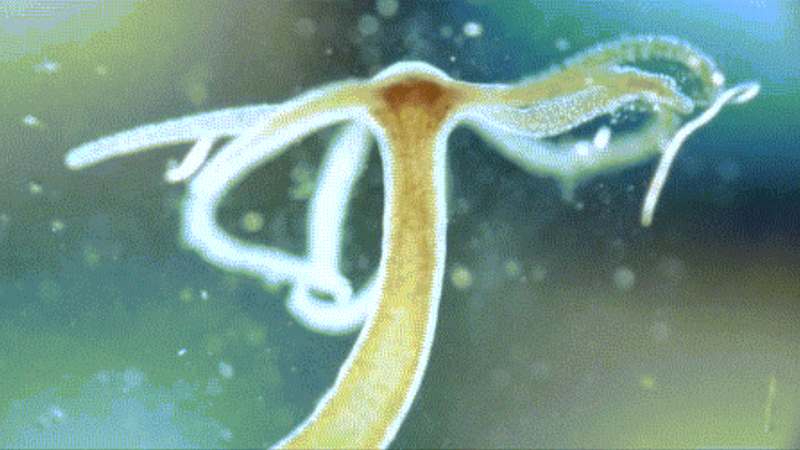It does not have a brain, or even much of a nervous system.
And yet, new research shows, it sleeps. Studies by a team in South Korea and Japan showed that the hydra periodically drops into a rest state that meets the essential criteria for sleep.
On the face of it, that might seem improbable. For more than a century, researchers who study sleep have looked for its purpose and structure in the brain.
…
But a counterpoint to this brain-centric view of sleep has emerged. Researchers have noticed that molecules produced by muscles and some other tissues outside the nervous system can regulate sleep. Sleep affects metabolism pervasively in the body, suggesting that its influence is not exclusively neurological.
…
And the intriguing implication of that finding is that sleep’s original role, buried billions of years back in life’s history, may have been very different from the standard human conception of it.
Sleep might have helped to maintain the first sleeper’s rudimentary nervous system, but it could just as easily have been for the benefits of its metabolism or digestion. “Before we had a brain, we had a gut,” [researcher Michael Abrams] said.































